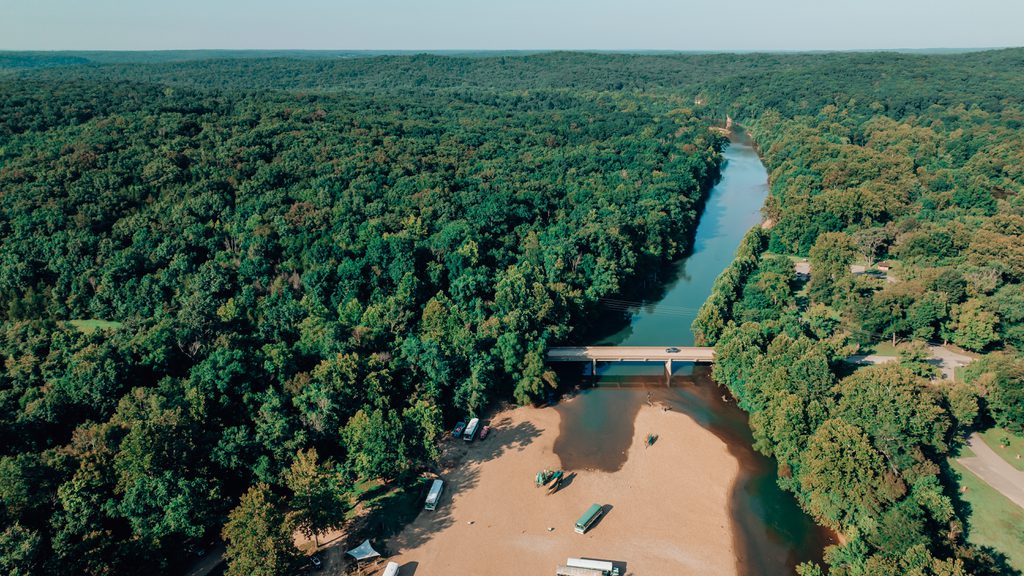
No matter how our individual dreams and goals differ, we’re all in one way or another chasing the same thing: success, significance, and happiness. Of course, we all may have slightly different interpretations of each and as we grow, our definitions may change. One of the biggest ways I determine my own success and significance—and what brings me the most joy—is being a father. When I think about what I want to be remembered for, it’s simple: I want to be most famous in my own home. That, to me, would be the pinnacle of success and significance.
But success, significance, and even happiness can’t be driven by any one area of your life. Just as money can’t buy you happiness, peak fitness isn’t going to change your life any more than being surrounded by good friends. It’s the intersection of success, significance, and happiness in all areas of life (what I call the “8 F’s”) that can change your life.
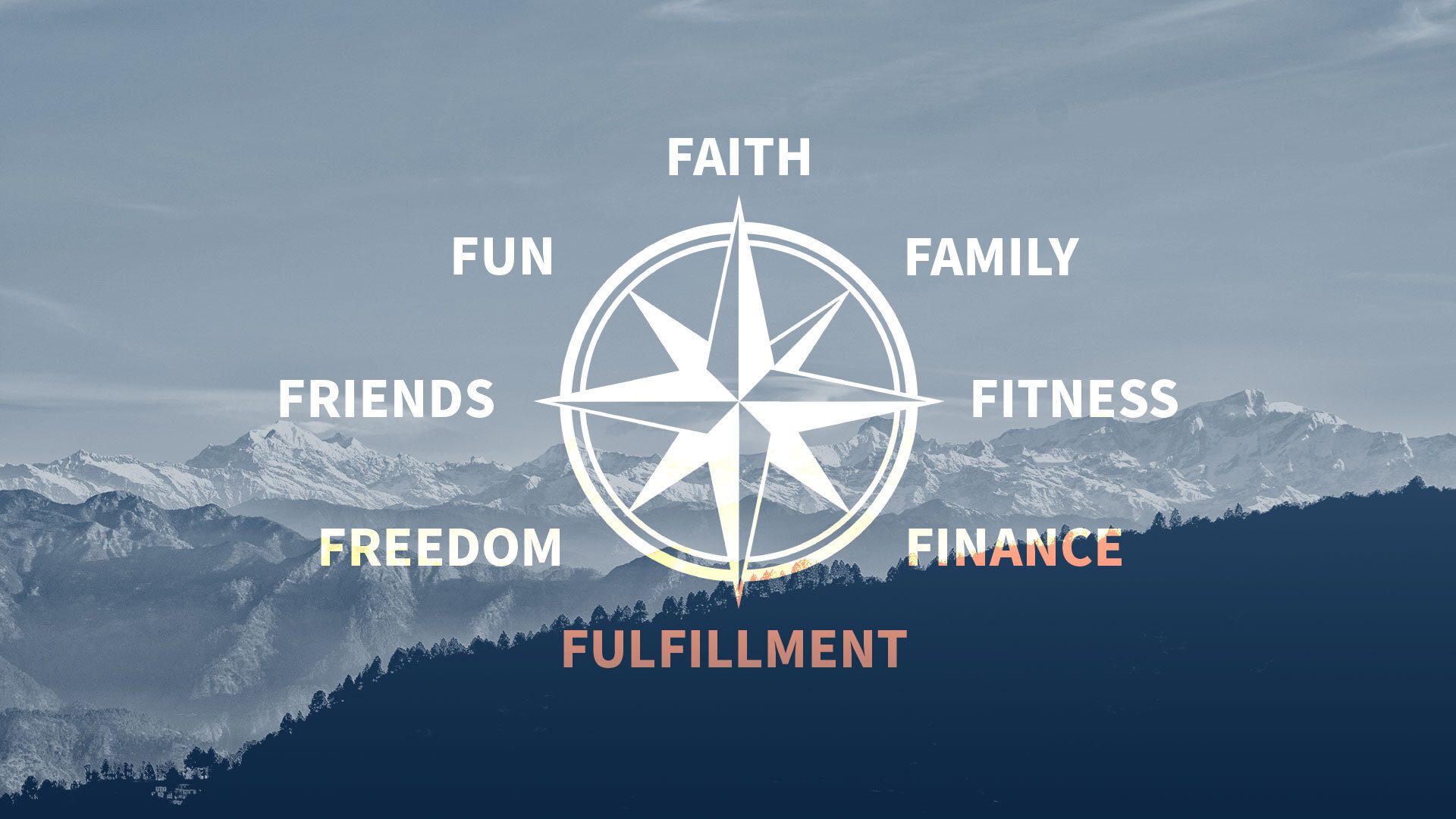
The 8 F’s include faith, family, fitness, finance, fulfillment, freedom, friends, and fun. For years I have trained on the 6 Key Commitments to achieving success, significance, and happiness in these areas:
- Intentionality
Today, people are busier than at any other point in history. The familiar sentiment shared by many is that there’s not enough time in the day to get everything done—yet, the world’s most successful people have the same 24 hours in a day as the world’s least successful. The difference? Those who are successful are intentional with how they spend each and every one.
In everything you do, ask yourself, is this advancing my goals or merely keeping me “busy”? Consider your goals in all areas of life (the 8 F’s). For example, creating extraordinary days with Carla and the boys doesn’t bring DLP Capital closer to being one of America’s 100 largest private companies, but it does advance the Wenner family towards our family BHAG (big, hairy, audacious goal). - Purpose
Mark Twain famously said, “The two most important days in your life are the day you are born and the day you find out why.” Having a clear purpose is key to living an intentional life. When you know and embrace what you were placed on this earth to do—as a parent, as a partner, and as a professional—everything changes. - Goals
“If you want to be happy, set goals that command your thoughts, liberate your energy and inspire your hopes.”
-Andrew Carnegie
When I bring up goals, I’m talking about something bigger than I want to spend less time on social media or I want to cut back on sugar. I’m talking about what you want to be remembered for: living a life for your eulogy, not your resume. This is deep, important work—so where do you start? It starts with identifying your perfect life metrics. In 30 years, what would need to be true for you to reflect back on your life and say, “that was perfect.” For me, one of my perfect life metrics is for all three of our sons to be happy, healthy adults living joyful, impact-driven lives of significance. The key step? The plan to get there. What intentional actions are you going to take until you get there? - Grit
Talent, intelligence, resources—all of these things can help you be successful, but none are the single most important differentiator between the most successful people in the world and everyone else. What is? Grit. This short clip from Angela Duckworth, author of Grit: The Power of Passion & Perseverance is the perfect intro to the concept. In short, it’s about having the stamina to stick with your plan for the future, marching towards your goals day after day and week after week, no matter what gets in the way. It’s living life like it’s a marathon, not a sprint, and never losing sight of the finish line. - Growth Mindset
Having a growth mindset means having the core belief that everyone is capable of learning and growing.
In contrast, a fixed mindset is one that believes that everyone’s abilities are largely pre-determined.
Here’s an example that illustrates the difference. Imagine two students both get a C on the same math test. The student with the fixed mindset believes, “I’m just not good at math,” and may find a way to place blame on others (the teacher didn’t cover this properly, the classroom was so loud, etc.) The student with a growth mindset looks over each problem asking, “What did I get wrong?” and focuses on mastering the concepts for the next test.
A fixed mindset is inherently limiting, whereas a growth mindset helps you embrace challenges, persist in the fear of obstacles, welcome critical feedback, and in the end, continue to reach new levels of achievement.
- Presence
I’ve had the privilege of meeting some of the world’s most successful and influential people. One thing I’ve noticed among all of them is their ability to make me feel like I am the only person in a room—their ability to be fully present in any given moment. I often refer to this as having no conflict between where your head is and your feet are.
What I mean is that whether you’re in a meeting with a high-stakes client or at the dinner table with your family, your mind is right there with them. You’re not thinking about the emails you need to respond to, wondering why your phone just vibrated in your pocket, or thinking about what you’ll do when you’re done here. This is key not only to bringing your boldest and best self to your biggest challenges, but also to the things that are the most important to you, be that your family, friends, faith, or something else.
Recently, I’ve added a seventh commitment: preparation. At DLP, one of our core values is Prepared to Win, which goes along with one of my favorite quotes, “ Many have the will to win, few have the will to prepare to win.”
Preparation is a non-negotiable for sustained, long-term success. Preparation requires discipline. It forces you to focus on what is really important vs what is merely urgent. For what is important, you must take deliberate, intentional action—you must be proactive and often you’ll find yourself pushing the proverbial boulder up the hill. The urgent, in contrast, acts upon you and all you have to do is respond. It’s the “urgent” that gets in the way of intentionality.
“The urgent is rarely what is important and what is important is rarely urgent.”
With these seven commitments, I believe anyone can live a life of success. We should all want to achieve success. Success is about achieving your goals, the things that you want—success is about self. I believe what we all really want though, even more than success, is significance. Significance is about others. It is about making a difference in the lives of other people. In order to achieve significance there are two more significant commitments.
Relationship with God
Relationships with family and community
These commitments are directly in line with the two callings of all our lives: to love God and to love your neighbor. In Matthew 22:37-39 (NKJV) Jesus said, “‘You shall love the LORD your God with all your heart, with all your soul, and with all your mind.” This is the first and greatest commandment. And the second is like it: “You shall love your neighbor as yourself.”
In order to achieve significance in our lives, we must have a deep relationship with God. We must spend time with him. We must love him with all our heart, soul, and mind. This happens through prayer, through reading scripture, through church, and through integrating your faith into all the areas of your life, turning your life into worship. Living Fully at its core is about integration, with the most important integration being your faith integrated into your work, into your relationships, into all areas of your life.
In addition to our relationship with God, having deep relationships in your life, where you are adding value to others, typically starting with those you cherish—your family and closest friends—is a commitment we must make to be able to truly LiveFully, living a life of success and significance. This means investing intentionally into loving, supporting, encouraging, and cherishing the people you care about.
But the core of significance goes even deeper. In addition to loving what is typically a small number of people you cherish, having deep relationships within your community, where you are loving your neighbor, is vital to living a life of significance. While the most obvious example of community is the physical neighborhood you live in, there are several other communities many of us are a part of where we can put this into practice. It could be your community of colleagues where you work, a community made up of the parents in your child’s classroom, or the community you’ve become a part of at your local church. In all of these examples, showing compassion for and developing relationships with the members of the community are essential to living a life of significance.
Building an Extraordinary Life
I believe we all want to live an Extraordinary Life: a life of fulfillment, success, and significance—what I call Living Fully. How we measure success is different for each of us. For me, I evaluate my life across 8 areas—the 8 F’s I identified earlier of faith, family, fitness, finance, fulfillment, freedom, friends, fun and faith. I believe that success is about achieving the goals we have across the 8 F’s, when we are living a fully integrated life. As wonderful as success is, it’s largely about self and adding value to your own life. The greater goal of life is significance, which is about others and how you create value for their life.
It isn’t one or the other. We can achieve success AND significance, truly living an extraordinary life and Living Fully. But it won’t happen by chance—we must commit to living this life. How fortunate we are that each of us can choose to live an extraordinary life—this amazing gift is entirely in our own hands. All it takes is commitment.
For many years I have been studying highly successful people. Some of these people are successful in some areas of life, while success eludes them in others. Some are blessed to be successful across all 8 F’s of life, but they haven’t found significance. It’s partly from these observations and partly from my own experience that I’ve identified the 13 commitments that I believe are the key to unlocking an extraordinary life, filled with joy and happiness, success and significance. Learning, practicing, and living these commitments is the foundation to building an extraordinary family and a legacy that leaves a lasting impact for generations to come.
I’ll give you a sneak peak of the first two of these commitments here and hope you’ll join me for a virtual workshop introducing these commitments for the first time on Wednesday, September 10th at 5:00 PM. Even if you aren’t able to join live, I highly encourage you to register so you can receive the recording after the session.
If you’re ready to start taking the steps to build an extraordinary life and legacy, you’ll want to join our team for the Extraordinary Legacy Event this November 4-6th in Ponte Vedra Beach, Florida. We’ll have the honor of being joined by David Green, Founder and CEO of Hobby Lobby and likely the most generous man in the world, for a special discussion inspired by his upcoming book, The Legacy Life: Leading your Family to Make a Difference for Eternity.
Use code: DT50% for 50% off attendance for this incredible event.
Preview: The 13 Commitments of Living an Extraordinary Life

Living intentionally, living life on purpose, is where an extraordinary life begins. It is the foundation of an extraordinary life. Living intentionally is the opposite of having good intentions. As the great John C. Maxwell likes to say, “Good intentions are useless.” Good intentions are nothing more than wishful thinking.
I want to eat better.
I want a better job.
I’m going to try to—you can fill in the blank with any number of things here.
Living intentionally is taking deliberate, consistent, and willful action.
Living intentionally is living for the words, well done, good and faithful servant.
Living intentionally and good intentions are complete opposites, separated by action.
Living intentionally requires beginning with the end in mind, living a life focused on your destination, where you want to go in life.
Living intentionally requires flexibility in how you will get there, but clarity on where you are going.

Intentionality is knowing where you are going. Purpose is knowing why you are going there. Purpose is all about the why.
The most important purpose is the purpose of our lives. I mentioned this quote earlier, but it can’t be repeated enough: “The two most important days of our lives are the day we are born and the day we find out why.” Purpose is the calling of your life and will guide your commitments and focus.
But purpose extends beyond just the big picture calling of our lives—it extends to the why for everything we do. Knowing the purpose for each commitment you make. Knowing the purpose (the why) behind you attending a meeting or making a phone call is critical to maximizing each day, hour, and minute of your life. Similar to intentionality, this requires beginning with the end in mind for each activity we do.
Register for the 13 Commitments Virtual Workshop to Learn More
Meeting Flywheel Creator & My Favorite Author, Jim Collins
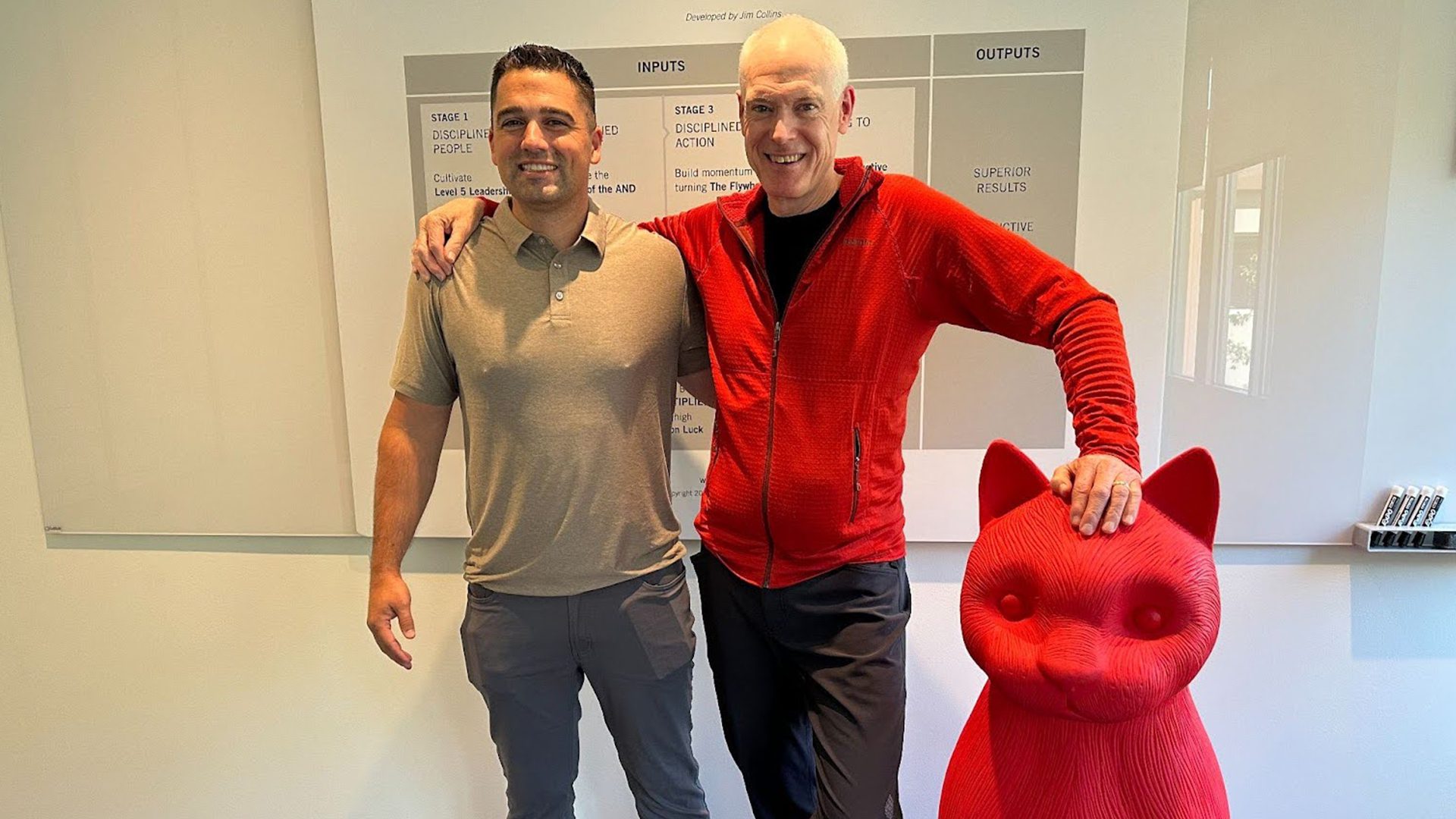
Earlier this month I had the honor of not just meeting but spending time with an author whose writing has been instrumental in my growth as a leader: Jim Collins. From How the Mighty Fall to Good to Great and now his latest book, Be 2.0, all of Jim’s books have made a profound impact not just on me but on DLP, as well. During our meeting, he introduced me to new concepts around the flywheel, a tool that we use here at DLP to build and accelerate our momentum and that he writes about in Turning the Flywheel. I got to workshop the current DLP flywheel with him and got some incredible feedback that I plan to bring to the team for an internal workshop. I’m planning to have a follow up meeting with Jim in the coming months and am already looking forward to it.
A Major Milestone: My Rite of Passage Trip with Donny
Each year as part of the family goals I set in my Personal Compass, I focus on making time for overnight trips with both of our older children. This year, as Donny turned 13 and entered his teen years, it was important to add another trip to the family goals:
a rite of passage trip. Earlier this month, just the two of us traveled to The Pisgah Inn, a breathtaking retreat in the Blue Ridge Mountains just a little under an hour from our home in Asheville, NC. We spent time deepening our relationship with one another as well as with the Lord, with both structured and unstructured time that accounted for the things Donny enjoys as well as areas where I wanted to help him grow. It was one of the most meaningful experiences I’ve had so far as a father and I can’t wait to be able to bring Alex and Jacob on similar trips when they’re ready.
I put together a quick guide on planning a rite of passage trip, including lessons and discussion questions that you can use with your own son. You can download it here.
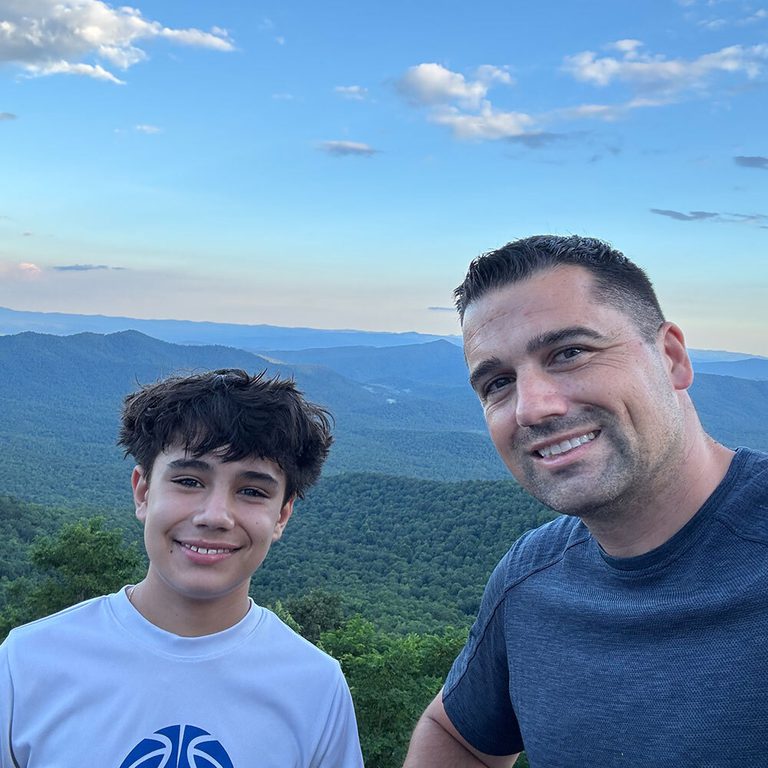

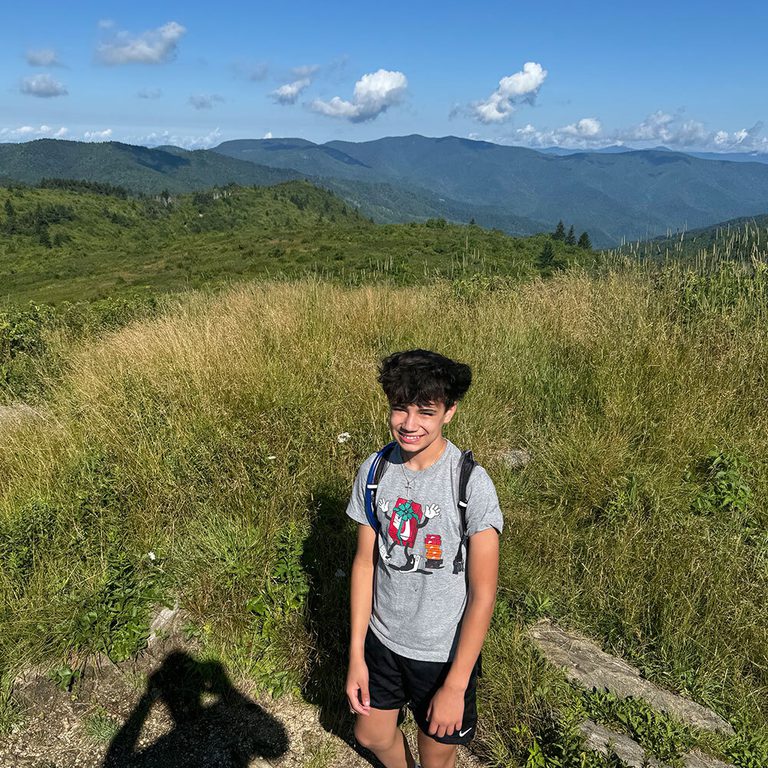

Where I've Been




Where I'm Going
